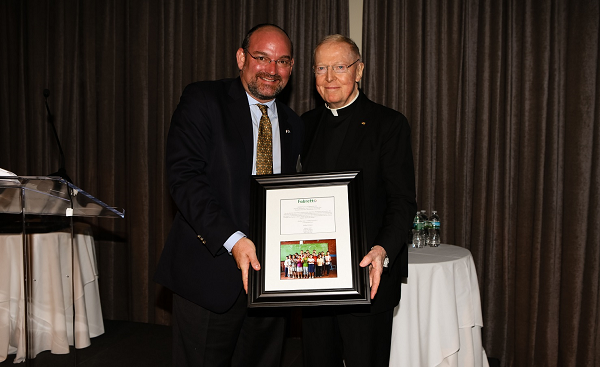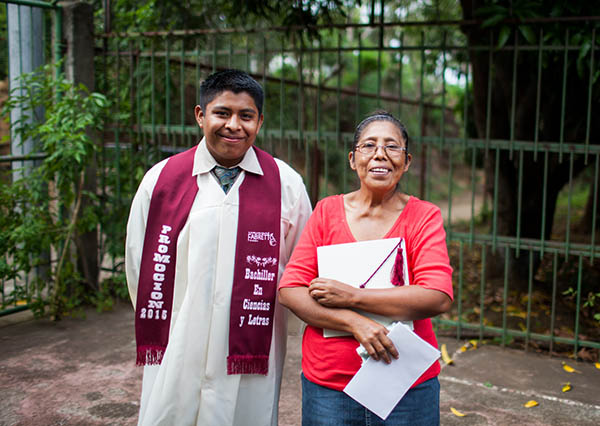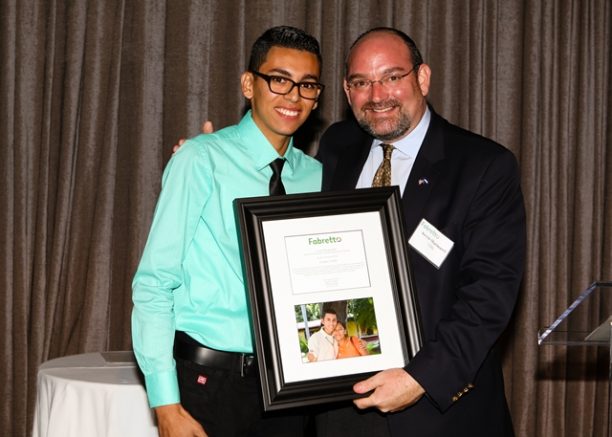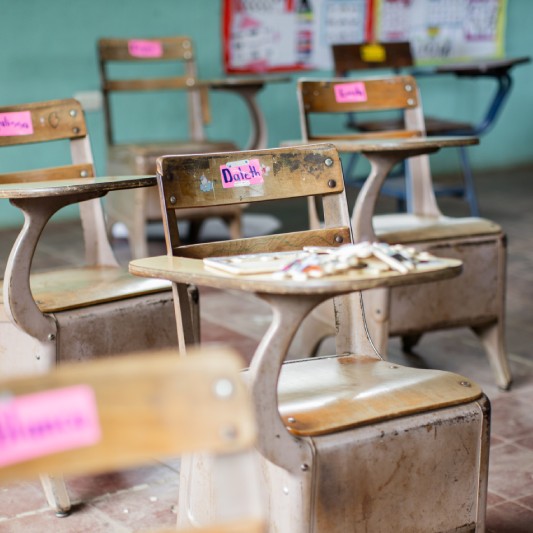5-5-16 | Shared Stories

Fabretto Night for Niños
5 May 2015
This year we celebrate our Night for Niños on the Feast of the Ascension of Jesus. Half a century ago Karl Rahner called this day the feast of the future of the world, a day when we celebrate God’s being with us through Christ in all the years to come, not through visible presence but through the gift of the Holy Spirit which gives us hope and courage to live the reality of Jesus in our time. How fitting for a community committed to the care and education of the very poor but also, and still more, promising children of Nicaragua.
We celebrate for these children, still more than for ourselves, a new future, things not yet expected, the time coming to us from God that is full of, filled with, God’s Holy Mystery. We celebrate new hope for the children’s lives and our own, a hope for fulfillment that dawned for the Jewish people and for the heirs of pagan antiquity with the birth of the Messiah, the arrival of the Savior who might make the world whole. Through the vision of John from the Book of Revelation, we celebrate “a new heaven and a new earth”(Rev. 21.1), a transformation of our earthly, mortal existence into a spiritual, immortal one. The world, with Jesus, is reborn, renewed, given its most radical meaning through the revelation of eternal life.
St. Paul so longs for that eternal life through Christ that he speaks of our being citizens of heaven, from which we hope for the coming of Christ to make us “glorious,” as resplendent with the abundance of God’s presence as he is. (Phil 3.20) But that very notion of citizenship comes to us from our struggle to live together well in this world, with responsibility not only for our local community but for the community of the world as a whole, the full human family of interdependent women and men whose individual independence is impossible without their mutual interdependence. The notion as at once radically rational, a product of mind seeking meaning, and deeply religious, an awareness of the utter giftedness of life. As believers, we are always a church in a particular place, a communion where the paschal mystery, the passion, death and resurrection of Jesus is proclaimed, celebrated and lived. But we are also a world church, a communion of communions. Unlike nation states, each local church always reaches beyond itself in union with its worldwide sister churches.
Nicaragua and Nairobi
Anyone who has visited Fabretto and its children in Nicaragua knows this. We are shortly going to see and hear from our young global citizen César what it means to have grown up in his hometown of Cusmapa, Nicaragua, cradled by the care of Fabretto. And we will believe him when he says that he feels very close to us. He will help us to realize more deeply that we are more truly members of a loving church in New York (followers of Christ here) when we are in communion with the members of the church in Nicaragua (followers of Christ there).
I am myself just back from a visit to refugees in Nairobi, Kenya, where I learned again–saw, really–how deeply aching hearts there are part, united with, entwined in, our hearts here, half the world away. However privileged we may seem to be here, Christian hope is fundamentally one hope, and to those who seem to be last by every sensible, practical reckoning, it is promised that they shall be first.
Citizens of a New World
This great vision that the community of faith transcends all national divisions and boundaries frees us from narrow-minded patriotism, conventional and restrictive boundaries, and the seductive, supposed superiority of “exceptionalism.” It has its modern philosophical expression in the great ideal of cosmopolitanism proposed by Immanuel Kant at the end of the 18th century and refined for our own time by, among others, Kwame Anthony Appiah in his proposal of a rooted cosmopolitanism, a care for the world that grows in direct proportion to its commitment to one’s own personal, historical community. Such a vision gives globalization a heart, and lives from the hope for what we call life mysteriously eternal, when “the dwelling of God is with men and women” and God will “make all things new.” (Rev 21.3, 5)
Tonight it is the Niños of Nicaragua who bless us by reminding us of what faith reveals and reason explores: the gift of God to be truly human by being human together, the call to discover our true selves in God through care for the mysteriously varied and wonderfully diverse whole great family of God.
Thank you for reminding me tonight, on behalf of the children of Fabretto, of my deepest hope.
Leo J. O’Donovan, S.J.






